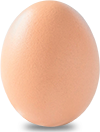Superior Protection&Faster Decomposition & Cost Savings – Food-Grade Sustainable Packaging
Innovative Solutions for Egg Containers: Enhancing Freshness and Sustainability
25 Sep,2025
Egg containers are essential packaging solutions that play a crucial role in preserving the quality and safety of eggs during transportation and storage. As the demand for sustainable and efficient packaging increases, manufacturers are continuously innovating to create egg containers that meet both functional and environmental requirements.
One of the primary functions of an egg container is to protect the eggs from damage. The structure of the container is designed to absorb shocks and prevent cracking, which is vital for maintaining the integrity of the eggs. Various materials are used in the production of egg containers, with paper-based options becoming increasingly popular due to their lightweight nature and recyclable properties. These paper egg containers provide an eco-friendly alternative to traditional plastic options, aligning with the growing consumer preference for sustainable packaging solutions.
In addition to protecting the eggs, a good egg container must also ensure proper ventilation. Eggs are perishable products, and maintaining appropriate air circulation helps to regulate temperature and moisture levels, extending their shelf life. Many modern egg containers incorporate features like perforations or breathable materials to enhance airflow, helping to keep the eggs fresh for longer periods.
Moreover, the design of the egg container can greatly influence user convenience. Containers that are easy to open and close, with secure closures, reduce the risk of accidental spills and make handling easier for consumers. Customization options, such as labeling and branding, are also important for businesses looking to enhance their market presence. Using eco-friendly inks and designs that resonate with sustainability can attract environmentally conscious consumers.
Another aspect to consider is the production process of egg containers. Manufacturers focusing on sustainable practices are increasingly utilizing recycled materials in their production. This not only minimizes waste but also reduces the carbon footprint associated with the manufacturing process. By choosing egg containers made from recycled paper, businesses can contribute to a circular economy while also appealing to consumers who prioritize eco-friendly products.
In summary, egg containers are more than just packaging; they are vital for ensuring the quality and safety of eggs while also addressing environmental concerns. With numerous innovative designs and sustainable materials available, businesses in the paper packaging industry can enhance their product offerings, cater to evolving consumer preferences, and contribute to a more sustainable future. As the market continues to grow, staying informed about the latest developments in egg container technology will be essential for maintaining a competitive edge in the industry.
One of the primary functions of an egg container is to protect the eggs from damage. The structure of the container is designed to absorb shocks and prevent cracking, which is vital for maintaining the integrity of the eggs. Various materials are used in the production of egg containers, with paper-based options becoming increasingly popular due to their lightweight nature and recyclable properties. These paper egg containers provide an eco-friendly alternative to traditional plastic options, aligning with the growing consumer preference for sustainable packaging solutions.
In addition to protecting the eggs, a good egg container must also ensure proper ventilation. Eggs are perishable products, and maintaining appropriate air circulation helps to regulate temperature and moisture levels, extending their shelf life. Many modern egg containers incorporate features like perforations or breathable materials to enhance airflow, helping to keep the eggs fresh for longer periods.
Moreover, the design of the egg container can greatly influence user convenience. Containers that are easy to open and close, with secure closures, reduce the risk of accidental spills and make handling easier for consumers. Customization options, such as labeling and branding, are also important for businesses looking to enhance their market presence. Using eco-friendly inks and designs that resonate with sustainability can attract environmentally conscious consumers.
Another aspect to consider is the production process of egg containers. Manufacturers focusing on sustainable practices are increasingly utilizing recycled materials in their production. This not only minimizes waste but also reduces the carbon footprint associated with the manufacturing process. By choosing egg containers made from recycled paper, businesses can contribute to a circular economy while also appealing to consumers who prioritize eco-friendly products.
In summary, egg containers are more than just packaging; they are vital for ensuring the quality and safety of eggs while also addressing environmental concerns. With numerous innovative designs and sustainable materials available, businesses in the paper packaging industry can enhance their product offerings, cater to evolving consumer preferences, and contribute to a more sustainable future. As the market continues to grow, staying informed about the latest developments in egg container technology will be essential for maintaining a competitive edge in the industry.
Recent Posts








